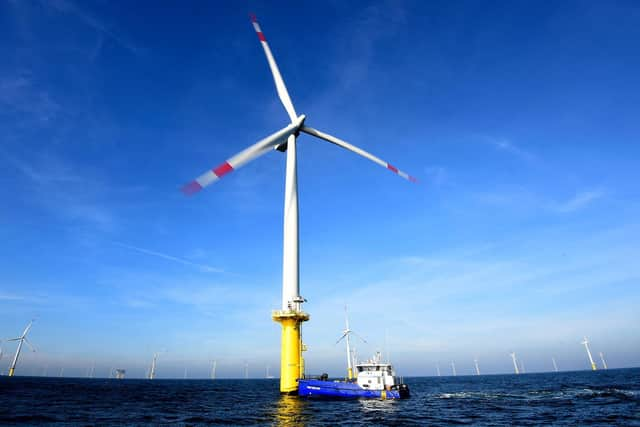Offshore workers’ rights must improve as part of ‘Just Transition' to renewables – Kenny MacAskill
The UK has since echoed that pledge outwith the gathering and has had a supporting chorus from the Scottish Government. A Green Jobs Taskforce, south of the Border, and a Just Transition Commission, north of it, are now established. What could possibly go wrong for workers as we seek to move from oil and gas to renewables in the North Sea? After all, it’s the industry most affected and although fossil fuels remain vital, there’s a shift on that will only increase in pace.
But there’s issues arising with the minimum wage not being uniformly applied and immigration law being used to exploit workers from abroad. Worsening that is the lack of coverage for existing employment rights and especially health and safety legislation. The latter has been brought to light by a recent tragedy.
Advertisement
Hide AdAdvertisement
Hide AdOn Sunday, January 22, a UK worker went missing from Valaris 121, a mobile offshore drilling unit being towed to Dundee and which was then some 98 miles from Aberdeen. Police Scotland investigated and, whilst satisfied there was no requirement for any further action by them, still had concerns which saw them notify the Health and Safety Executive (HSE).
Now, this is a situation where HSE wouldn’t normally become involved. That they did so is perhaps indicative of wider concerns. But although they are involved, they do not have responsibility or authority. Had this been on land then they would have had primacy and a report to the Crown may have been forthcoming, leading to a Fatal Accident Inquiry. Had it been on an oil or gas rig, or even on a turbine, then a similar situation would apply.
But this occurred both outwith the UK territorial waters of 12 miles from shore and on what is classified as a ship or vessel. Accordingly, this doesn’t come under health and safety laws but maritime regulations. They proscribe that the investigating authority is the vessel’s flag state or where it’s registered. In this case, it’s Liberia, the flag state, although apparently operations are managed from Virginia in the USA. So, the presumed death of a UK worker’s to be investigated by a country in another continent and one where its shipping registrations already cause concern.
This tragedy affects far more than one grieving family, as it has ominous implications for workers transitioning to offshore wind. Whilst the current legislation covers working on a turbine or even a cable, the nature of the sector is that little time will be spent there.
They’ll be covered if the unit or vessel is attached to the turbine. But that’s only a small part of the job. Instead, it’s either travelling to the offshore wind farms or working on vessels like Valaris, which are more akin to floating workplaces than ships. Most often they’ll not be attached to a turbine and rights won’t apply.


It's why the legislation needs changed, as the sector’s expanding fast, affecting not just hundreds but thousands of workers. It just cannot be right that a death in the North Sea’s left to Liberia to investigate. This isn’t a Just Transition.
Kenny MacAskill is Alba Party MP for East Lothian
Comments
Want to join the conversation? Please or to comment on this article.
